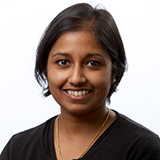 It’s that time of year again—yes, it’s changeover time. Thousands of new doctors are navigating their first weeks in a ward near you. Even though the statistics behind the fears of increased mortality have been shown to be questionable, patients, nurses, and senior doctors alike still await the arrivals with trepidation.
It’s that time of year again—yes, it’s changeover time. Thousands of new doctors are navigating their first weeks in a ward near you. Even though the statistics behind the fears of increased mortality have been shown to be questionable, patients, nurses, and senior doctors alike still await the arrivals with trepidation.
Truthfully, it is probably the new recruits who are in need of the most reassurance. I remember my first day, being handed the brick weighted bleep and clutching for dear life onto my “cheese and onion” Oxford Handbook of Clinical Medicine. I was petrified: overnight I had gone from a relatively carefree student to an actual doctor with real responsibilities and people’s lives depending on me. While the white coats and hard copy books have gone, the life of the new doctor remains as it always has—it’s a matter of survival for the first few weeks while you get to grips with the wards, staff, ward rounds, and your consultant’s quirks.
Despite its trials, I can now confidently say that my first year as a doctor was the most rewarding and enjoyable of my professional career. In a Medical Protection Society (MPS) survey of nearly 450 doctors who have just completed their first foundation year, 80% said that they had enjoyed their first year, which is encouraging, and 60% said they are optimistic about their future career. Twenty one per cent of respondents said that they were thinking of changing careers—perhaps a reminder that the wounds of the junior doctor contract dispute are still raw for many, or simply that the reality of being a doctor didn’t match the expectation.
Nearly a third (32%) said that they found the experience better than they had expected, which is interesting considering new doctors are now better prepared for clinical practice, with more clinical assessments at medical school and more time on the wards and periods of shadowing.
But we all know from our own experiences that the first year presents its fair share of surprises and challenges. Our competence and knowledge is tested, and there are many physical and mental hurdles to clear. Of course, long hours, workload, erratic eating, and tiredness featured in the MPS survey as key struggles and I would’ve been shocked if they hadn’t. When asked about day to day challenges in dealing with patients, again, unsurprisingly, 85% of those surveyed felt that their biggest challenge was not having enough time to spend with their patients.
Perhaps more surprising and reflective of the times, however, were the other main challenges identified: managing unrealistic expectations (73%), the fear of being sued or complained about (27%), dealing with abusive or aggressive patients (26%), difficult conversations (26%), and, finally, competing with “Dr Google” (13%). While we may not be able to do much about the strains on time and resources, the other challenges demonstrate the increasing importance of the “softer” skills required as a clinician. Certainly in my day as a newly qualified doctor, I didn’t think about being sued and “Dr Google” hadn’t even been born.
MPS has long advocated that medical students are taught about and prepared for the increasingly hostile medicolegal and ethical environment in which doctors have to practice.
While complaints and claims are now inevitable, good communication with patients and their families can help to prevent concerns from escalating. Managing expectations also comes down to open and honest conversations about risks and outcomes, and if they are not managed properly this can often lead to a claim. Support and training from senior colleagues to help with these skills is invaluable. While case based discussions are usually centred around the pathology and clinical aspects of a presentation, it would seem sensible to discuss how patient expectations and concerns can be managed effectively, and medical school training could do more to highlight these issues too.
Notably in the MPS survey, nearly nine out of ten new doctors (87%) said that they had experienced stress and anxiety in their first year, and nearly half (47%) said they have felt isolated. We can all do more to provide emotional support, and clinical leaders and managers should also seek to foster and maintain environments that support, nurture, and help these young doctors—thereby harnessing their enthusiasm.
After all, the success of our entire healthcare system depends on them.
Dr Pallavi Bradshaw is senior medicolegal adviser at the Medical Protection Society.
Competing interests: None declared.
References
The Medical Protection Society conducted a survey of foundation year one members. The survey ran from July 5-19 2017 and received 442 responses.
